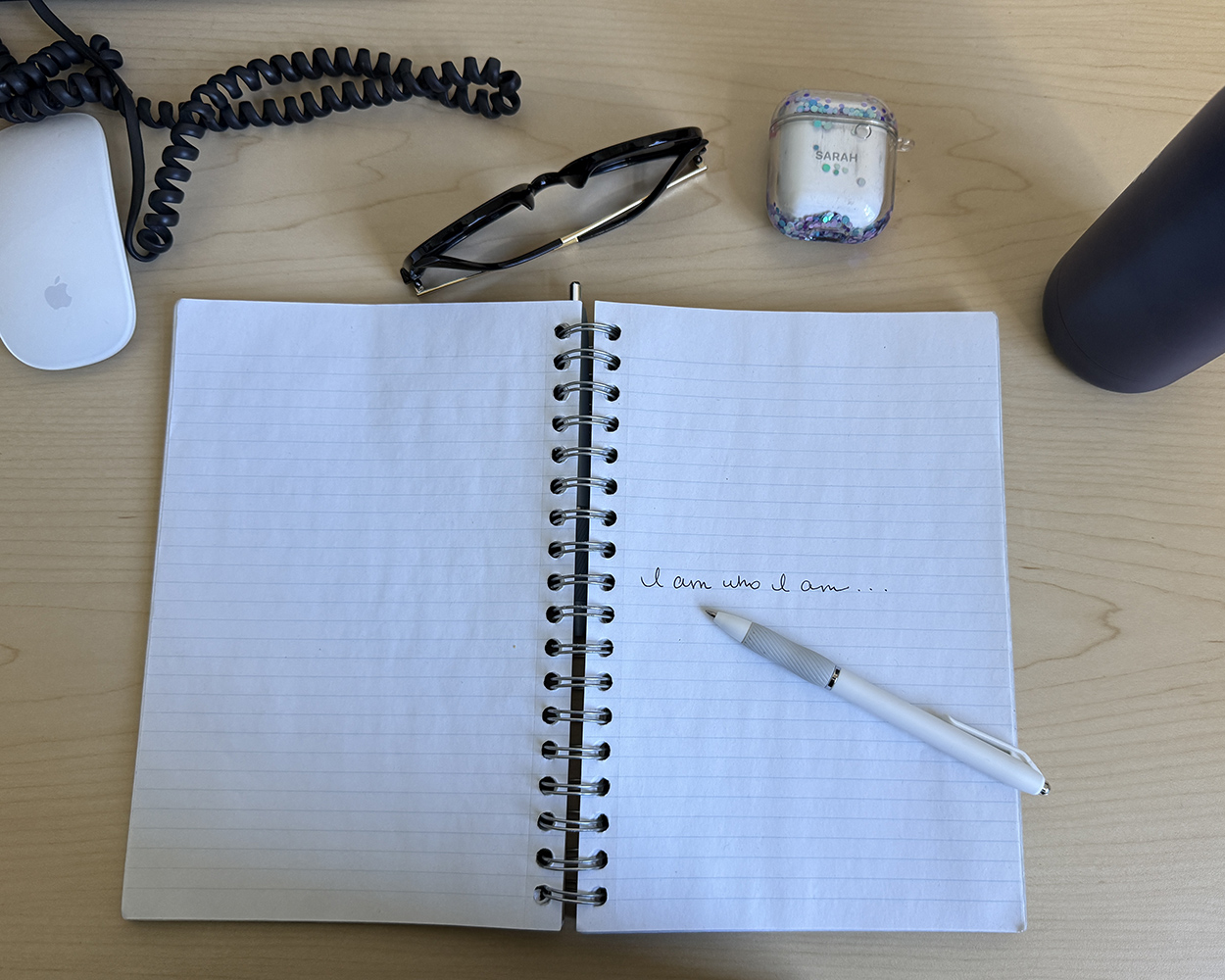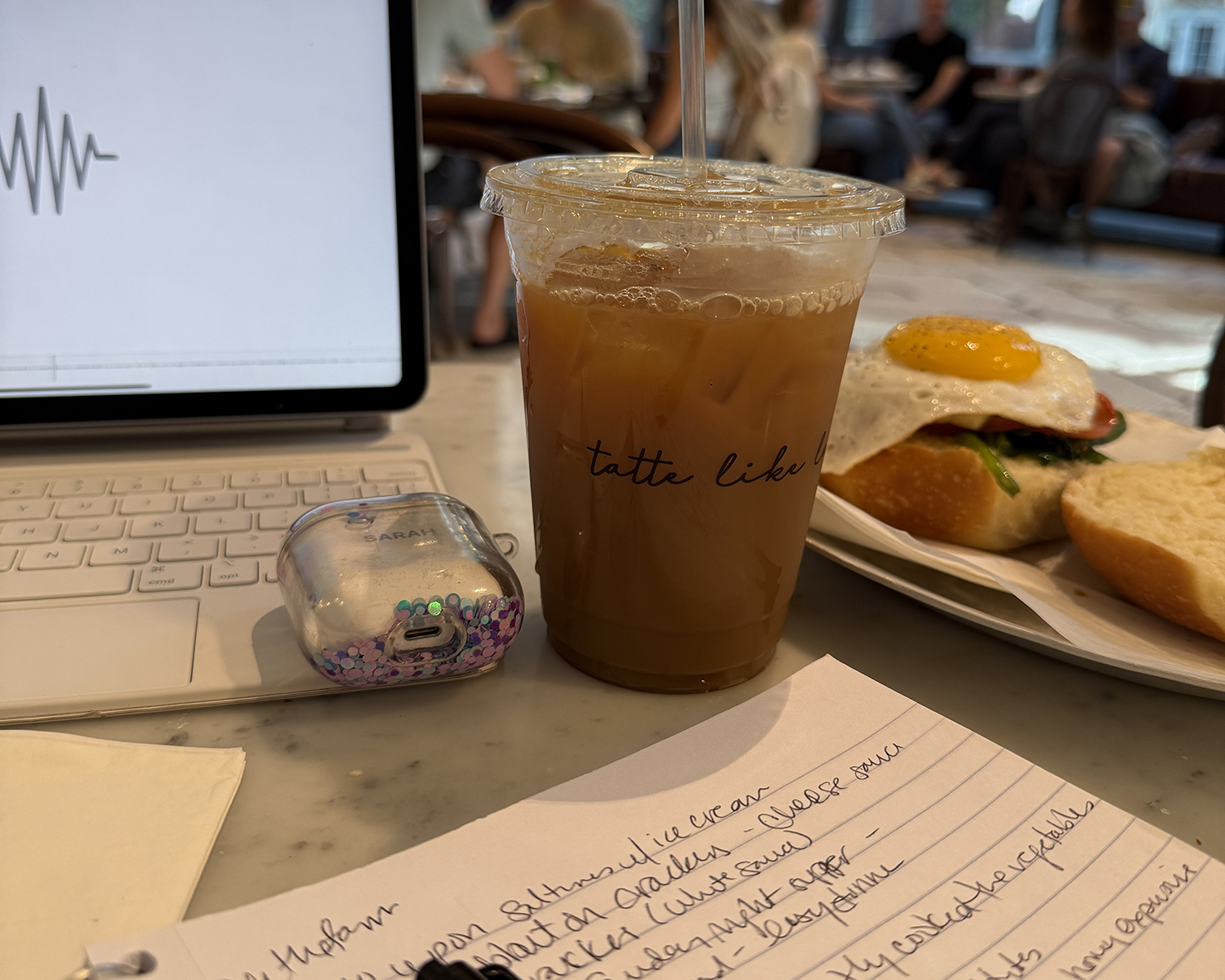It’s early morning when I talk to him about my writing in a way I’ve never talked to anyone before. I’m nervous. I’ve had several conversations like this before but never with this level of trust or detail. Those previous conversations were disasters — I don’t want this one to be.
In the past, one person didn’t want to be in any of my writing, despite being a part of my daily life. He constantly said “I am not an important part of this. Just take me out.” The censoring made me feel silenced, with the heart of stories being rerouted to versions I didn’t recognize.
But this time, it’s different. Even I feel different.
“So, we need to talk about my writing,” I begin.
Censoring myself is a deal breaker — I need the freedom to write and to continue my career. And yet, somehow, I knew he didn’t want me to hold back.
“You know I write about my life, and if you’re part of it, I need to be able to write about it. I mean, I won’t share our secrets, but the every day is what I do. Writing is my calling, and I’ve had to censor myself before and it was not good for me,” I tell him.
I can hear his smile through the phone, in his words, the way it lights up his eyes.
“I’m looking forward to seeing how you write about us,” he says, and I am instantly at ease. “You’re an amazing writer. Have I told you that recently? I remember this one essay you wrote on …”
Peace swells through me. He gets it.
That understanding is essential to a writer who uses their own experience in their work.
But an essential part of this is having the conversation when writing about real people. When you don’t, you risk that relationship.
A year ago, a piece came out many months after I wrote it and destroyed a relationship with someone I cared about — someone who knew well what I did for a living but wasn’t expecting to be a character in my story. I never thought it would be an issue — they were unidentifiable in the essay. The resentment was palpable.
And it was my fault, for not pausing to talk about it. Where I saw identity as the issue, he saw content as the problem. I was careful to conceal his identity, but he read it through a lens of betrayal. It oversimplified something deep in favor of relatability — creating a universalness in the essay.
As a writer, particularly one that dwells in personal essays, I am often exploring experiences with other people in my writing. Over the last three decades, I have written about strangers, teachers, friends, family members, significant others, coworkers and my own children. My children, once they reached a certain age, were given some degree of agency about what I publish. They’ve never said I couldn’t, but they know they can. For others, I often employ a degree of anonymity. I rarely use names in my writing, for instance, opting for titles and descriptors instead.
For the people who appear frequently in my writing, or who I have a close personal relationship with, I will often talk to them about what I am doing before I hit submit or publish. That’s what happened when I wrote the rejected essay on boyfriend qualities. Both of my friends read it before I submitted. And when I decided to publish it here on my own website, they also approved the photo I used.
Perhaps my most important boundary though is writing about things from only my experience. I don’t pretend to know how things are for others. This makes my essays specific, because I tap into the emotions I experience to create connection with readers. Being vulnerable as a writer is one of my hallmarks. Even now, writing this, I am using vulnerability.
What I won’t do is tell stories that aren’t mine. And even when I am writing about others, I rarely use their names. If I do, I’ve cleared it with them first. The more sensitive a topic, the more careful I am. The people who know will know, but to the general public my essays could be about anyone.
As a writer, it’s important to remember that sharing stories is a privilege, and you must do so with integrity and care. I think about the character of Che on And Just Like That when I write this. When Che writes a new comedy set, part of their return to the circuit, they skewer Miranda and their relationship for the sake of laughs. Miranda happens to be there to witness this and is devastated. Che rethinks everything, and steps away from comedy. They have seen how writing can harm those we care about and don’t want to be that person.
That’s what the essay last year taught me too.
And this brings me back to the point: conversations are key when writing about real people, as essayists do. You may be writing about your own experience, but the way that affects the other characters in your story matters. So talk about it.




